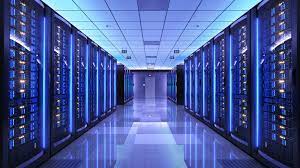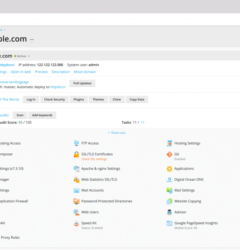27 Dec

When it comes to hosting applications and services, there are several options to choose from, including bare metal servers and cloud services. In this article, we’ll compare these two options in order to help you decide which one is right for your needs.
What are Bare Metal Servers?
Bare metal servers, also known as dedicated servers, are physical servers that are dedicated to a single user or organization. They are typically located in a data center and are managed by the data center provider.
Bare metal servers offer a number of benefits, including:
- Performance: Since you have the entire server to yourself, you can expect better performance than you would get with a shared hosting environment.
- Control: With a bare metal server, you have complete control over the hardware, operating system, and applications that are installed on the server.
- Customization: You can customize a bare metal server to meet your specific needs, including the type of hardware, operating system, and software that you want to use.
- Security: Since a bare metal server is dedicated to a single user or organization, you have more control over the security of the server.
However, bare metal servers also have some drawbacks, including:
- Cost: Bare metal servers can be more expensive than other hosting options, especially if you need to purchase hardware and software licenses.
- Maintenance: You are responsible for maintaining and updating the server, which can be time-consuming and costly.
- Scalability: It can be challenging to scale a bare metal server, as you need to purchase additional hardware and set it up manually.
What are Cloud Services?
Cloud services, such as DigitalOcean, are virtual servers that are hosted on a network of physical servers. They are managed by the cloud provider, and users can access them over the internet.
Cloud services offer a number of benefits, including:
- Cost: Cloud services can be more affordable than bare metal servers, especially if you only need a small amount of resources.
- Scalability: Cloud services are highly scalable, as you can easily increase or decrease the resources that you are using.
- Maintenance: The cloud provider is responsible for maintaining and updating the servers, which means that you don’t have to worry about these tasks.
- Security: Cloud providers typically have robust security measures in place to protect your data and applications.
However, cloud services also have some drawbacks, including:
- Performance: While cloud services can be fast, they may not offer the same level of performance as a bare metal server.
- Control: With a cloud service, you don’t have complete control over the hardware and software that is being used.
- Customization: While you can customize a cloud server to some extent, you may not have as much flexibility as you would with a bare metal server.
Which is Right for You?
Ultimately, the decision between bare metal servers and cloud services will depend on your specific needs and budget. If you need high performance, complete control, and customization, a bare metal server may be the best option. However, if you are looking for a more affordable and scalable solution, a cloud service may be a better fit.
In general, small businesses and startups may find that cloud services offer a more flexible and cost-effective solution, while larger enterprises may prefer the performance and control of a bare metal server.
Finally, the best option for you will depend on your specific requirements and budget. It’s important to carefully consider your needs and compare the pros and cons of each option before making a decision.








Recent Comments